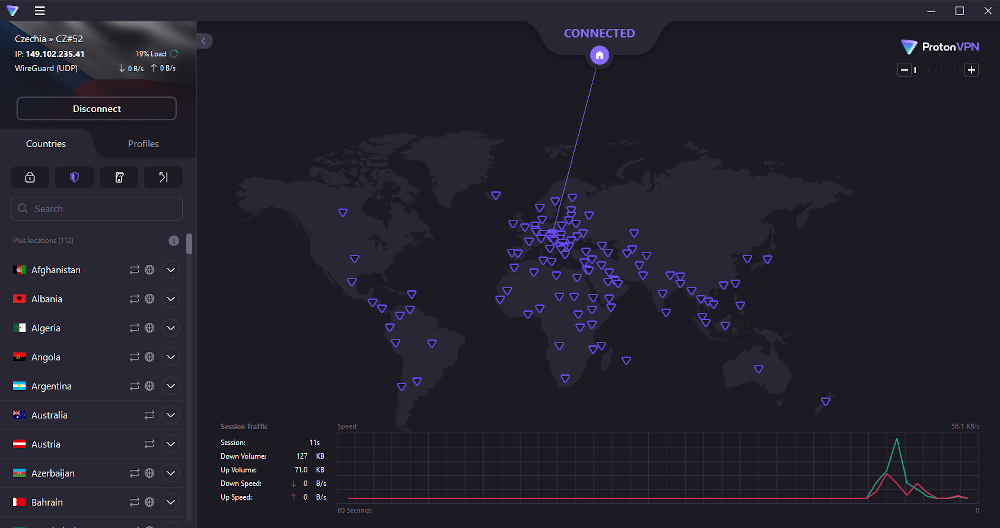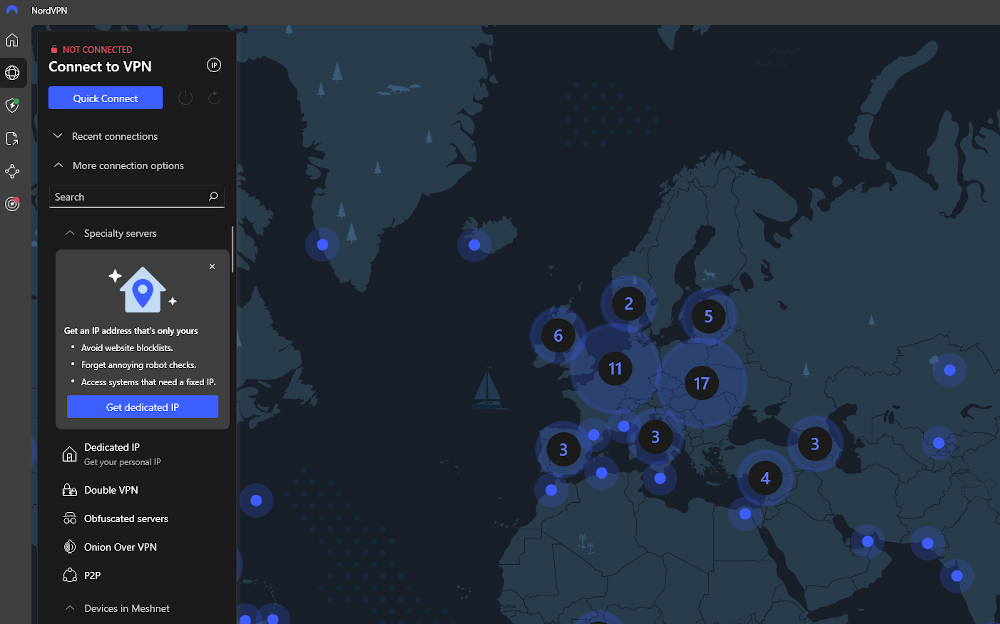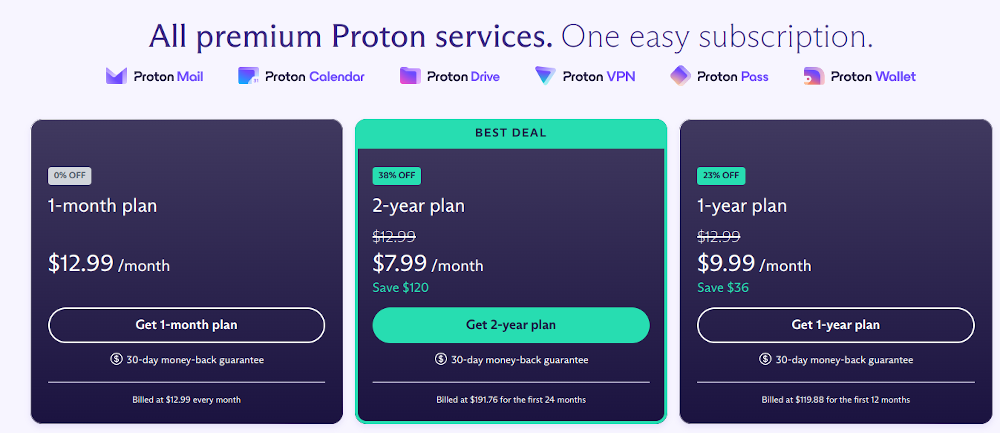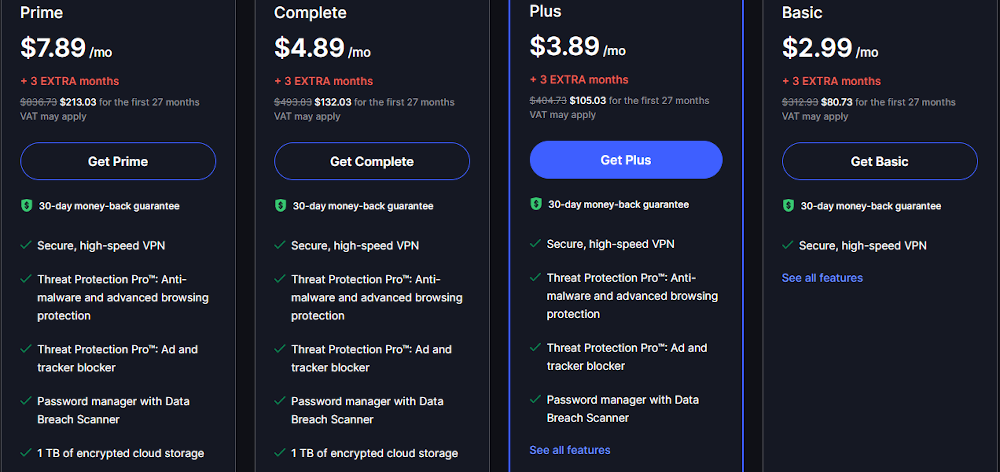If you’re looking over shopping for a VPN, you’ll quickly come across two of the biggest names in the business, Proton VPN and NordVPN. In this article, I’ll compare the two and see which will be the better fit for you.
Ease of Use
When comparing the interfaces of NordVPN and Proton VPN, I have to admit I’m not too impressed with either. Both seem to believe that you should go big or go home and have added a lot of frills to their clients.
Proton VPN is the biggest offender here. When you first open up the client, you’re greeted with a large screen featuring a map of the world, with a huge graph charting your performance below. Your controls, the buttons that turn the VPN off and on, are at the bottom right of the screen, hidden between a number of less-than-useful other buttons.
Proton VPN’s saving grace here is that it has a button that hides the map and graphs, leaving you with a much simpler, mobile-style interface. It’s a massive improvement, though it still comes with some confusing buttons that could easily have been put with the other settings.
NordVPN also has a massive map that takes up more real estate than it should, but at least the map is interactive, allowing you to choose locations to connect to. At the same time, though, the server selection screen is even smaller than Proton VPN’s, meaning you may have to squint if looking for a specific server.
When it comes to interface, I’m not sure which service I like less, so I’m going to call this a draw. I also genuinely do not understand why more VPNs don’t take the approach of Mullvad or ExpressVPN, two services that give you one button, a server list, and that’s it. VPNs are simple programs, there’s no need to overcomplicate matters like NordVPN and Proton VPN do.
Performance
When it comes to performance, Proton VPN seems to do a little better. I’ve tested both services many times over the years, and NordVPN has rarely impressed me. Though I won’t say it’s slow, it’s not truly fast, either, and services like IVPN leave it in the dust.
Proton VPN does much better, especially the last few years. I’m not sure what has changed, but the last time I checked its speeds I found it barely lost any tempo at all. This is quite the accomplishment, and one that NordVPN has never quite attained.
Cost
Next up is cost, which is a tricky one, mainly because NordVPN isn’t straightforward. With Proton, what you see is what you get: it’s $60 per year for Proton VPN alone ($110 for two years), and $120 per year for the Proton Unlimited bundle, which includes Proton Mail, Proton Pass, and Proton Drive, as well (or $190 for two years). Nice and straightforward.
NordVPN offers four tiers of pricing, Basic, Plus, Complete, and Prime, with one and two-year options (I’ll skip the monthly plans as they’re terrible value with almost all VPNs). You switch durations with a button on the top right of the screen, which makes comparing them difficult. All plans offer an extra three months for free, regardless if you sign up for one or two years.
The Basic plan offers only the VPN, which sets you back $70 per year, or $80 for two years, which is a pretty good deal. However, it doesn’t quite make clear that this price is an introductory offer. Once your initial signup period is over, you renew at the “real” price, which in the case of the Basic plan is $175 for one year, plus tax.
$175 plus tax for a VPN is steep, and you should never pay this much. NordVPN follows this pattern with all its plans, so whichever one you may decide works for you, realize that you should only sign up for one term and then switch to another provider unless NordVPN repeats the offer.
NordVPN Plus adds the NordPass password manager and some threat detection software for $80 per year plus tax, or $105 plus tax for two years, which is an okay deal until you need to resubscribe at $225 for a year. Switching password managers can be a pain, so I’m not sure how good a deal this is.
The NordVPN Complete plan is $100 plus tax for one year, and $130 for two years and adds 1TB of cloud storage. The final plan, NordVPN Prime, adds ID theft insurance for U.S. customers and is $140 plus tax for the first year or $215 plus tax for the first two years. It renews at astronomical rates of over $400 and over $800, respectively.
When it comes to pricing, I’m have to go with Proton VPN every time. The pricing scheme is straightforward and, as a customer, you know what you’re up against. With NordVPN, you need to grab a calculator and read the fine print—never a good way to start a subscription.
Security and Privacy
When it comes to security and privacy, Proton VPN has the advantage, albeit a slim one. Over the years, it has garnered a reputation for being a privacy-focused service, based in part on the company’s tireless activism, as well as the fact that it’s based in Switzerland. This country’s strict privacy laws give Proton users a large umbrella to shelter under—though Proton does make clear it’s not bulletproof.
NordVPN is headquartered in Panama, another privacy-first country, though without the reputation of its Alpine counterpart. The issue here is that, over the years, NordVPN has been peppered with small-scale scandals. Though none of these are at all major, when compared to Proton VPN, which has had nothing of the sort, this does make NordVPN stand out.
However, this really is only a small issue as otherwise both services tick all the right boxes. Both use protocols that keep you safe, with NordVPN defaulting to its proprietary NordLynx protocol—based on the high performance WireGuard—while Proton VPN uses the more standard, but no less safe, OpenVPN and also has its Stealth protocol for anybody that needs to run silently online.
Proton VPN vs NordVPN: Which Should You Choose?
Overall, I think Proton VPN is the better VPN by far. It performs better, is cheaper, and I think the bundle does more for your online security that NordVPN’s does. The only thing that NordVPN does better is the interface, and only marginally. While both have earned their place in our roundup of the best VPNs, I know which one I would pick.
Everyone’s use cases are different, however, so if you’re still on the fence, you may want to take a more detailed look at what Proton VPN and NordVPN offer.








